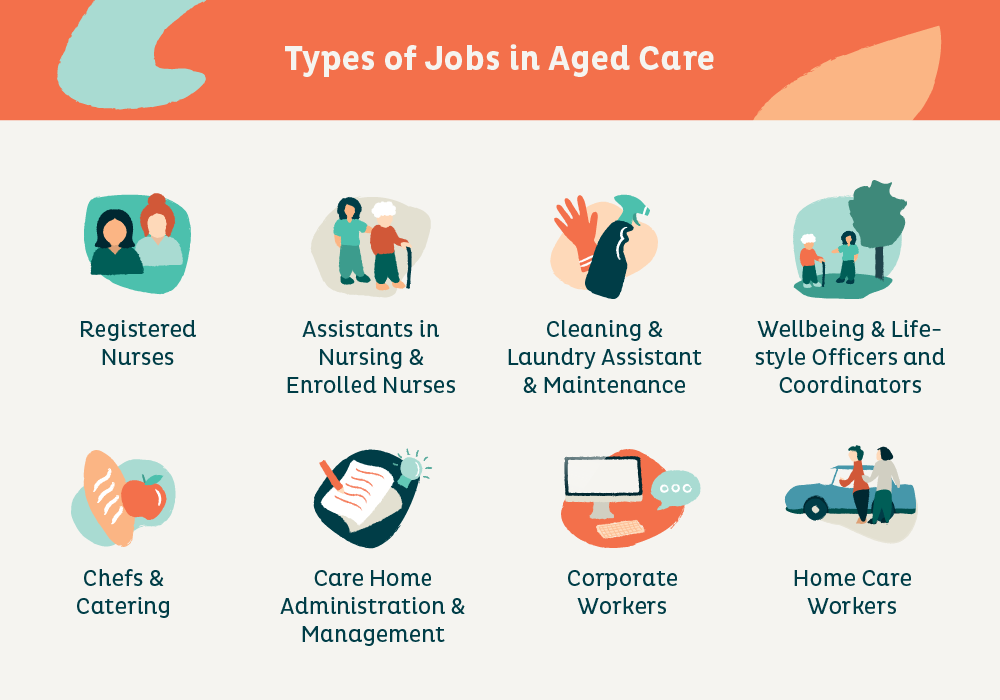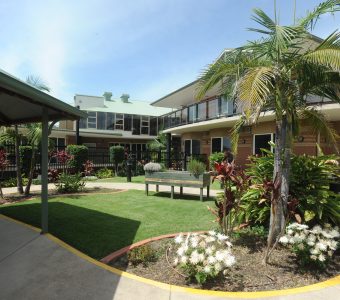
Tips To Prepare For An Aged Care Job Interview
Aged care is a deeply rewarding career that offers the opportunity to make a meaningful impact on the lives of older Australians. Whether you’re just starting out or looking to advance your aged care career, the interview process is your chance to demonstrate your skills, passion, and commitment to providing high-quality care.
At Whiddon, we believe in fostering a compassionate, skilled workforce that is dedicated to delivering relationship-based care. If you’re preparing for an interview for an aged care job, here are our top tips to help you feel confident and ready to showcase your expertise.
Research the Role and Organisation
One of the best ways to make a great impression in your aged care job interview is to demonstrate your knowledge of the organisation and its approach to care.
At Whiddon, our focus in on relationship-based care, ensuring that residents and clients receive support tailored to their individual needs. Before your interview, take some time to:
- Explore the organisation’s values, purpose and mission – Aged care providers like Whiddon prioritise dignity, independence, and quality of life for their residents and clients. Researching this can help you align your answers with what the employer is looking for.
- Understand the role’s responsibilities – Whether you’re applying for a personal care assistant role or as an aged care chef, review the job description carefully. Think about how your skills and experience match the role.
- Stay informed about industry regulations – Aged care is a regulated sector, and demonstrating knowledge of certain standards like the Aged Care Quality Standards can set you apart from other candidates.
Showing that you understand the values of the organisation and how they translate into daily care practices can leave a lasting impression.
Understand the Key Skills and Attributes Needed
At Whiddon, we value more than just technical skills—we seek individuals who are compassionate, dedicated, and willing to make a difference. Employers in the sector will be looking for the following:
- Compassion and empathy – No matter the role, a key part of aged care jobs is forming meaningful relationships with residents and clients. Sharing experiences where you’ve provided emotional support, or companionship can help highlight this quality.
- Communication skills – From listening to residents’ concerns to working alongside families and colleagues, clear communication is essential in aged care.
- Patience and adaptability – Every day in aged care is different, so showing that you can stay calm and flexible in various situations is important.
- Understanding of technical skills – For some roles, employers will expect knowledge of technical skills such as infection control, mobility support, and dementia care.
Think about how you can demonstrate these attributes with real-life examples from your previous experience or training.
Common Interview Questions You May Be Asked
To succeed in your job interview, it’s important to anticipate the types of questions you may be asked. Some common aged care interview questions may include:
- Why do you want to work in aged care? Share your motivations, whether personal experiences or a desire to support older Australians.
- How would you handle a challenging situation with a resident or their family? Show empathy and problem-solving skills by providing an example. Real-life examples help the interviewer to see that you have the relevant knowledge and experience.
- Can you describe a time when you worked as part of a team? Aged care is collaborative, so employers want to know you can work well with others.
- How do you ensure dignity and respect for those in your care? Discuss relationship-based care and your approach to personalised support.
- What do you know about aged care regulations and best practices? Demonstrating industry knowledge will set you apart.
Preparing responses to these common questions will help you feel more confident in your interview. Demonstrating your skills, knowledge, and understanding by using real examples will be beneficial to you during your interview.
It is important to let your interviewer know if you are no longer able to attend the scheduled interview. If you can not attend, call them or send them an email to let them know, rather than not turning up. By not turning up to an interview and not notifying the interviewer, it not only wastes their time, but also demonstrates behaviours that are inconsistent with our Values.
Demonstrate Your Experience and Knowledge of Best Practices
Aged care providers want to hire candidates who are well-versed in industry standards and can apply best practices in their daily work. Be prepared to discuss:
- Your experience in previous aged care jobs – Share examples of how you’ve supported residents, managed care plans, or worked in multidisciplinary teams.
- Your understanding of aged care regulations – If you’ve worked in aged care before, mention how you ensure compliance with relevant industry standards.
- Your ability to handle challenging scenarios – Whether it’s managing resident behaviour, responding to medical emergencies or preparing meals for various nutritional needs, practical examples will strengthen your credibility.
We appreciate candidates who can demonstrate practical knowledge and a commitment to delivering high-quality aged care services.

Prepare Your Own Questions to Ask
Asking thoughtful questions can show your enthusiasm for the role and help you understand if the organisation is the right fit for you. Consider asking:
- What does a typical day in this role look like?
- What training and career development opportunities are available?
- How does the organisation approach relationship-based care?
- What are the biggest challenges in this role, and how do you support new employees?
- What are the next steps in the hiring process?
At Whiddon, we encourage applicants to ask about our career development pathways, as we support our team members in growing their skills and progressing in their aged care careers.
Follow Up After the Interview
Once your aged care job interview is over, take the time to follow up with the employer. Sending a short, professional thank-you email within 24 hours can leave a positive impression.
In your message, express gratitude for the opportunity, reaffirm your enthusiasm for the role, and mention any key points discussed in the interview that highlight why you’re a great fit.
It is important to wait to hear from your prospective employer, but if you don’t hear from them after a week or so, you might consider following up with an email or phone call.
It is also important to update your prospective employer if anything changes for you. For example, if you have accepted another opportunity or if you are no longer interested in the role.
Start Your Aged Care Career with Whiddon
At Whiddon, we know that aged care careers are more than just jobs—they are opportunities to make a meaningful impact. If you’re preparing for an interview, taking the time to research, understand the key skills required, and prepare thoughtful responses can help you stand out.
Whether you’re looking for care worker positions or hospitality jobs, Whiddon is always looking for compassionate, skilled professionals to join our team. We offer career development, ongoing training, and a supportive workplace where you can grow.
If you’re ready to start or advance your career in aged care, explore opportunities with Whiddon today.




